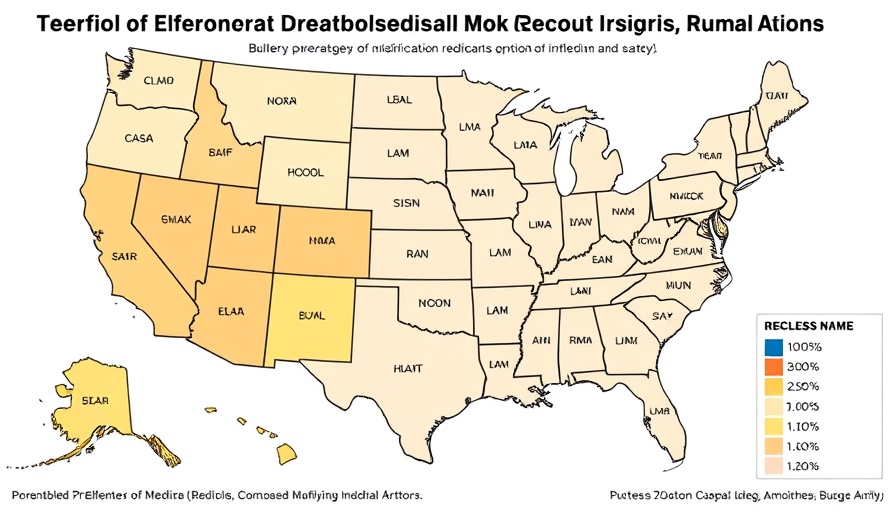
Understanding the Challenges for Medicare Beneficiaries in Rural Areas
As more than 10 million Medicare beneficiaries reside in America's rural communities, the challenges they face are substantial. Issues like workforce shortages, long travel times, and the looming threat of rural hospital closures make access to healthcare a significant concern for both older adults and younger individuals with permanent disabilities. According to recent data, a greater proportion of seniors living in the most rural areas have annual incomes below $20,000. This economic reality heightens their vulnerability, further exacerbating their struggles with chronic health issues — 32% of these beneficiaries have five or more chronic conditions compared to 25% of their urban counterparts.
Precarious Situations Amid Policy Changes
Current and proposed policies are set to impact even further the health landscape for these vulnerable populations. The GOP-led Congress's proposals to cut billions in Medicaid spending, likely to affect rural hospitals, raise a red flag for access to care. Proponents of rural health improvements, however, point to initiatives like Rural Health Clinics (RHCs) and the proposed expansion of definitions for rural emergency hospitals under Medicare as hopes for better healthcare delivery models in these isolated communities.
The Value of Awareness for Community Support
Understanding these disparities is crucial. By becoming informed about the unique difficulties faced by rural Medicare beneficiaries, community members and policymakers alike can collaborate on effective solutions. Grassroots initiatives may emerge as critical components in creating sustainable local health networks that bolster Medicare services. It's not just about improving healthcare; it's about fostering a communal spirit that supports each individual needing help. Knowing these statistics can empower us to advocate for better policies and support systems.
In conclusion, it is essential to stay informed about the health and economic challenges facing Medicare beneficiaries in rural areas. Your awareness can lead to discussions and actions that build healthier, more resilient communities. Engage, learn, and become part of the change!
 Add Row
Add Row  Add
Add 




Write A Comment